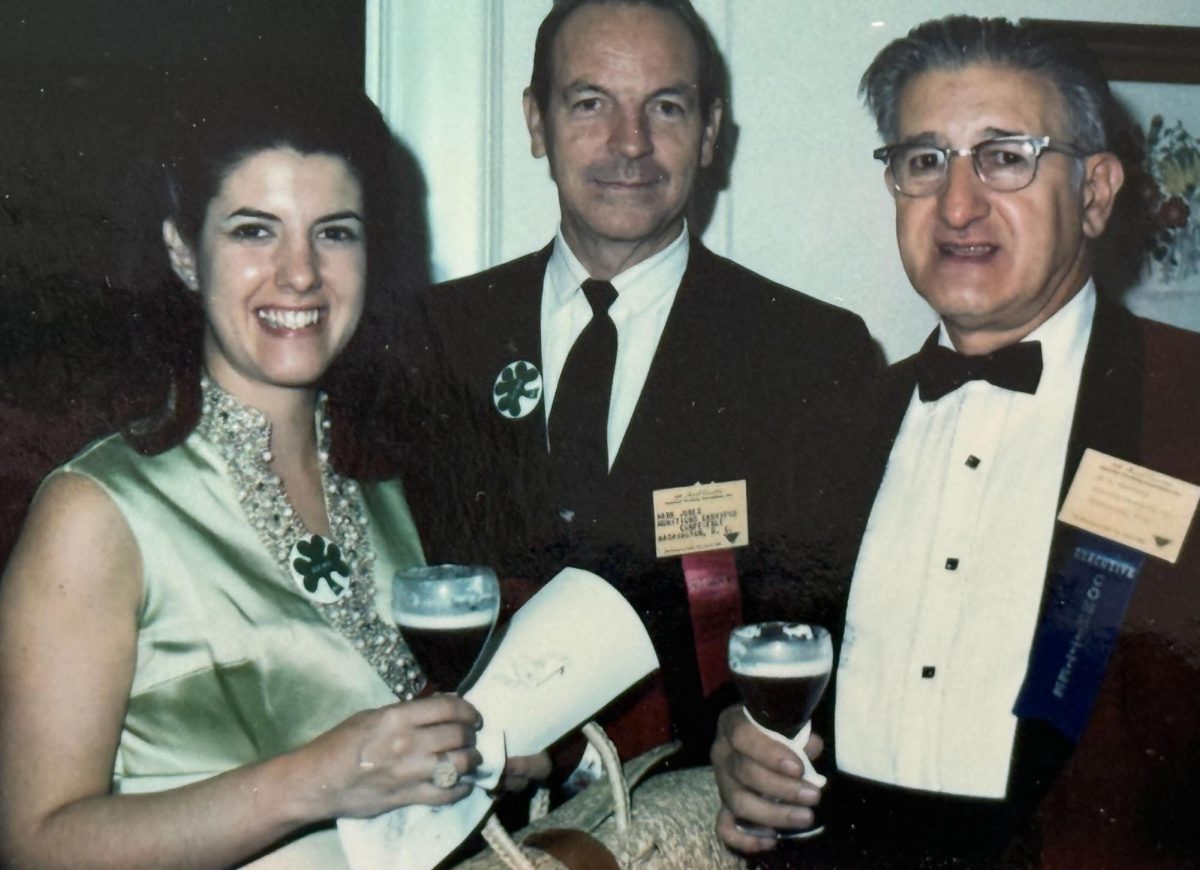Although many films are intended to reflect reality, films too often impact societal behaviors and standards, said the assistant director of the Women’s, Gender & Sexuality Studies program at Title IX’s Is it Love or is it a Red Flag? event on Monday, Feb. 12.
“Art doesn’t just imitate life – you don’t just represent what you see,” professor Rachel Danford said. ”Life also imitates art. If you see images modeling certain types of behavior or certain ideals, you will attempt to imitate those in your own life, and I do think that there is this drive that people have to live up to the images that are around us in film and in literature.”
Along with Danford, the panel’s speakers included professor Hilary Brewster, the director of the Women’s, Gender & Sexuality Studies program; professor
Del Chrol, the chair of the humanities department; Sam Kinnear, campus advocate for Contact Rape Crisis Center; and Shannon Petree Beckett, the director of systems advocacy for Branches Domestic Violence Shelter.
In light of Valentine’s Day, the panel discussed problematic behaviors in relationships—or red flags–that have, in part, been normalized due to the way they are portrayed in popular romantic movies such as “The Notebook” and “Pride and Prejudice.”
The most commonly identified red flags in the films were emotional manipulation, infidelity and aggression, which the panel pointed out are often confused with love.
“We romanticize conflict, and we equate conflict with passion,” Beckett said after showing a scene from “The Notebook.”
“Being in a relationship is hard enough, and conflict doesn’t necessarily mean you care more about that person.”
“Passion becomes an excuse for being unkind,” Danford added. “Love should make your life easier more often than it makes your life harder.”
Meanwhile, Brewster said it is equally bad to not have any conflict in a relationship.
“There’s this line of balance that fiction and movies are never going to show us,” Brewster said. “Having healthy conflict is the goal: not zero and not constant.”
The panel members frequently came back to the idea that the media’s portrayal of love can affect viewers’ personal relationships.
Referring to results published in a psychological study, Chrol said, “Folks who watched a lot of romantic comedies also expressed greater disappointment in their current relationships.
People who see these models exhibited in the media are often looking for that sort of thing.”
One famous standard created by a romantic comedy is from the 1989 film “Say Anything,” in which a character stands outside his ex-girlfriend’s window and serenades her with a boombox in order to win her back.
The panel members said that this scene portrays a form of manipulation and violated the female character’s consent.
“A lot of times, we normalize things that should be red flags,” Kinnear said, “and sometimes we really focus on things that are kind of red flags but maybe not as dangerous.”
She added that those in relationships should pay close attention to the severity of their partners’ red flags and how they respond to having their behaviors pointed out.
Darian Marcum, Title IX case manager and host of the event, recommended referring to the Power and Control Wheel to pinpoint toxic behaviors, a chart for identifying red flags in a relationship.




















